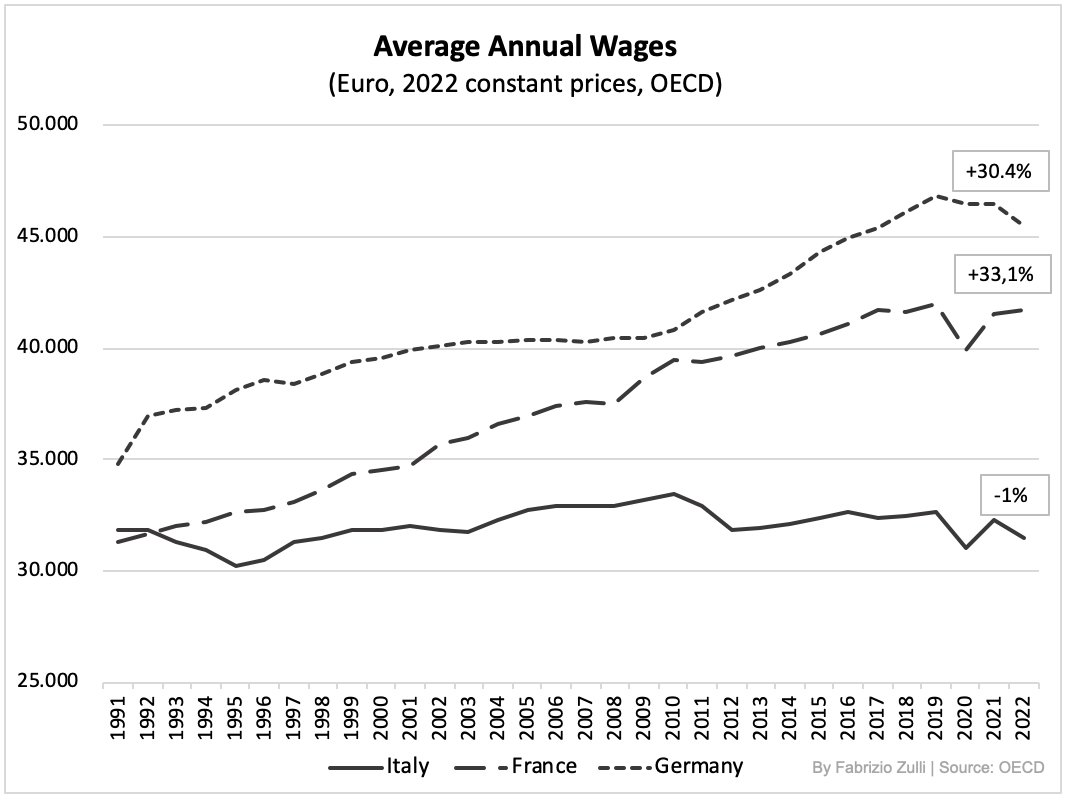Italy
The true roots of Italy’s political instability

Italy has seen the alternation of different political majorities over the past 15 years, but, in the end, the political history of the various successive leaders has been equally unsuccessful. Political parties have risen to prominence and to the pinnacle of power, only to plummet vertically.
The problem that has led to this is simple: choices made in the 1990s, seemingly unchanging, consistently affect people’s income; reduce it. Citizens feel the destruction of their well-being and therefore react by seeking political change and scrapping the previous leader.
To understand this progressive impoverishment, this graph by economist Fabrizio Zulli is sufficient

Real gross wages have fallen by one percent in Italy, compared to a 30 percent increase in Germany and a 33 percent increase in France. This makes it clear who the winners and losers of the last 30 years in the Eurozone have been.
So Italians are increasingly dissatisfied and, in the hope of solving their problems, they choose the leader who, in popular hopes, seems at that moment best suited to solve their problems.
Since the malaise is widespread in Italian society, practically at every level, the leader is also voted for with remarkable percentages for a democratic and multiparty country like Italy. Berlusconi exceeded 30 percent momentum, Matteo renzi touched 40 percent, and Salvini exceeded 34 percent.
None of these leaders, however, is able to hold the position more than a few years because, in the end, no one has the courage to address the basic problem: the inability to grow the income of Italians in the eurozone.
so many more of Italy’s political leaders will be sacrificed on the altar of economic failure and that, until all the generations that lived through the 1980s and 1990s are extinct,. It will take a few more years, but eventually Italy will achieve the stability it deserves: that of the grave.






